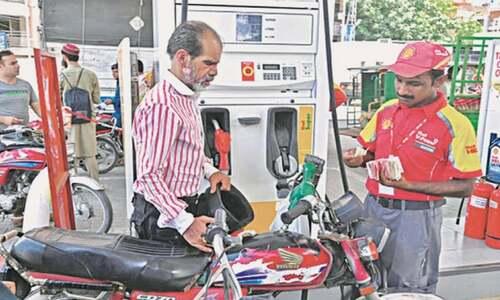“We are thinking of around Rs10-15 trillion in taxes,” said Mohammed Nasser Janjua, Chief POS (point of sale), Federal Board of Revenue (FBR). “It would take time, obviously, but it will revolutionise the tax system.”
Anticipating an amount more than three times FBR’s target for the current fiscal year seems optimistic to the extreme and can come to fruition only if the shadow economy is formalised. In an attempt to do so, the recent supplementary bill has made digital payments mandatory for amounts exceeding Rs250,000. While the provision has been kept in abeyance currently, Mr Janjua expects it to be implemented from July onwards.
An increase in digital invoicing through online payments would allow invoices to be processed by the FBR in real-time so by the time a business files tax returns, the invoices are already integrated
An increase in digital invoicing through online payments would allow invoices to be processed by the FBR in real-time so by the time a business files tax returns, the invoices are already integrated, explains Omer bin Ahsan, CEO of Haball and regulatory lead of the Pakistan Fintech Association.
“Businesses choose which invoices they want to show. By the time an audit takes place, invoices not taxed have been burnt away with the business cherry-picking the amounts they want to be taxed at,” says Mr Ahsan extolling the virtues of digital invoicing.
“Digitisation would directly integrate the books with the banking data correlated under their national tax number or CNIC,” he said, explaining it is as a top-down approach that would progressively audit big businesses rather than regressively as is the practice today.
“Digital invoicing should have been the bedrock of the digitisation process,” says Saad Niazi, COO of Keenu, a leading fintech company that provides end-to-end payment solutions.
Speaking of previous measures by the State Bank of Pakistan (SBP) to enforce digital POS transactions for tier 1 merchants, Mr Niazi said initially his company had faced resistance. But now, about 30,000 outlets had accepted digitisation of payments with acceptability increased to at least 80 per cent of merchants.
By his estimates, there are about 150,000 retail outlets that have the potential to accept digital payments. When you consider apps such as Easy Khata and CreditBook that provide digital solutions to micro businesses, the number can be as high as 3-5 million retailers, Mr Niazi estimates.
Pointing out the increase in acceptance of digital POS payments, he said the market is growing at about 17pc and his company has seen a growth of about 25-30pc in the current year. “If the drive continues, the next 10 years would see a different picture of the country.”
Digitisation helps plug leakages in the economy. Simple demand and supply dynamics dictate that more money in the system increases supply and ensures cheaper accessibility to credit, increasing business opportunities and creating more jobs.
While it is true that banks opt for risk-free lending to government entities, they are also risk-averse since they do not have access to data that digital integration with the FBR would allow. Essentially, this would mean the entire journey is digital, from manufacturer to retailer to end consumer, explained Mr Niazi.
Digitisation may be the only way north for Pakistan as it would eliminate the country’s substantial informal economy. Theoretically, digital invoicing could increase the tax net to the rosy figures that FBR is hoping for in the long run. Currently, given the high incidence of indirect taxes, the burden of taxation is carried by the middle- and lower-income groups.
Having said that, the best-laid plans come to nought without implementation. SBP’s 2020-21 annual report states that despite several initiatives taken to encourage the use of digital banking channels, the cash penetration in the economy is still very high, even compared to peer countries such as India and Bangladesh.
The small trader sitting in Jodia Bazaar dealing in millions of rupees regularly has no reason to be digitised. Tax evasion carries its own fines and jail times but has not increased the tax net, as evidenced by the regular exercise of amnesty schemes. It is unlikely that such measures would be able to enforce digital invoicing.
Similarly, a slew of incentives, assuming that the International Monetary Fund allows it, may not be successful in inducing businesses to digitise when they can save much bigger amounts by simply evading taxes as they have been doing historically. While digital invoicing paints a picture of golden hues, the reality is as dull, dreary and grey as it always has been. However, it is also the only way forward to increase tax revenue that could decrease Pakistan’s dependence on foreign funding.
Published in Dawn, The Business and Finance Weekly, January 7th, 2022












































